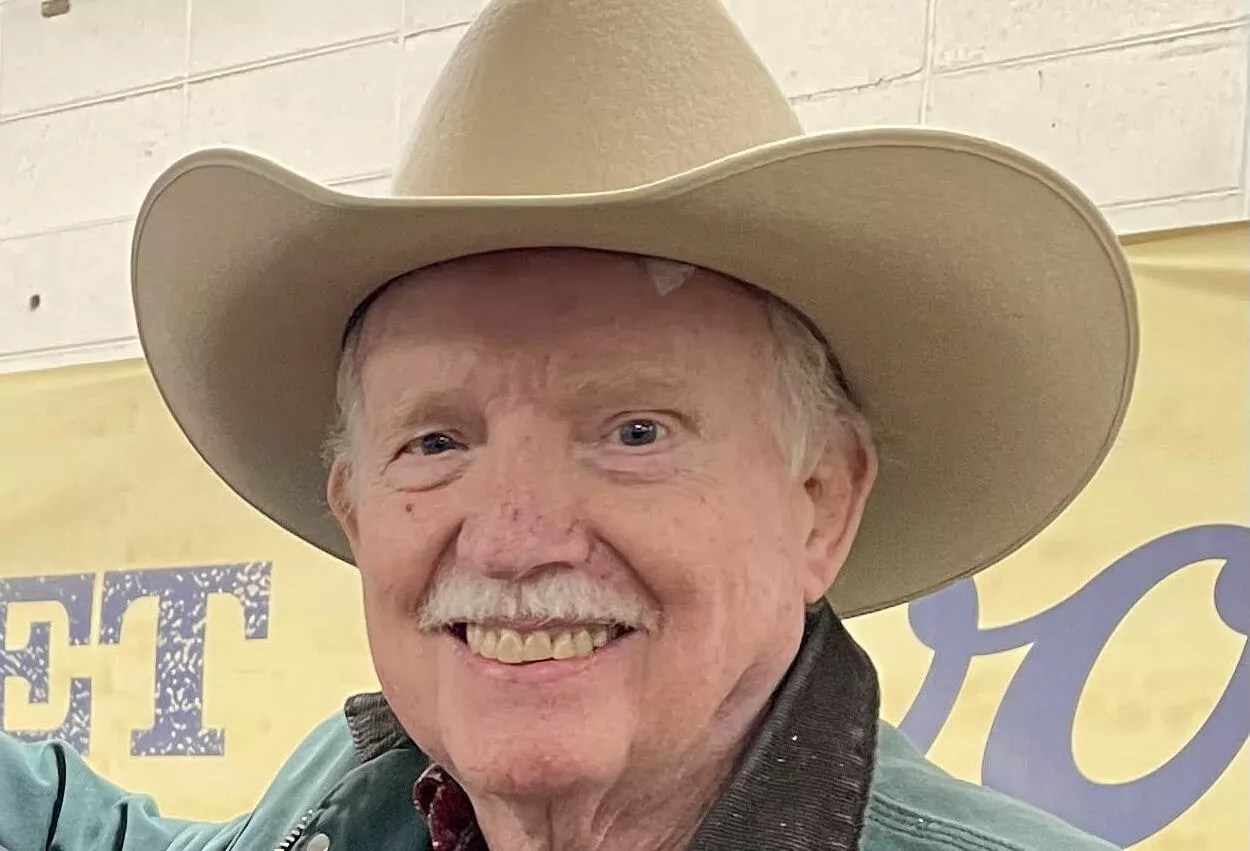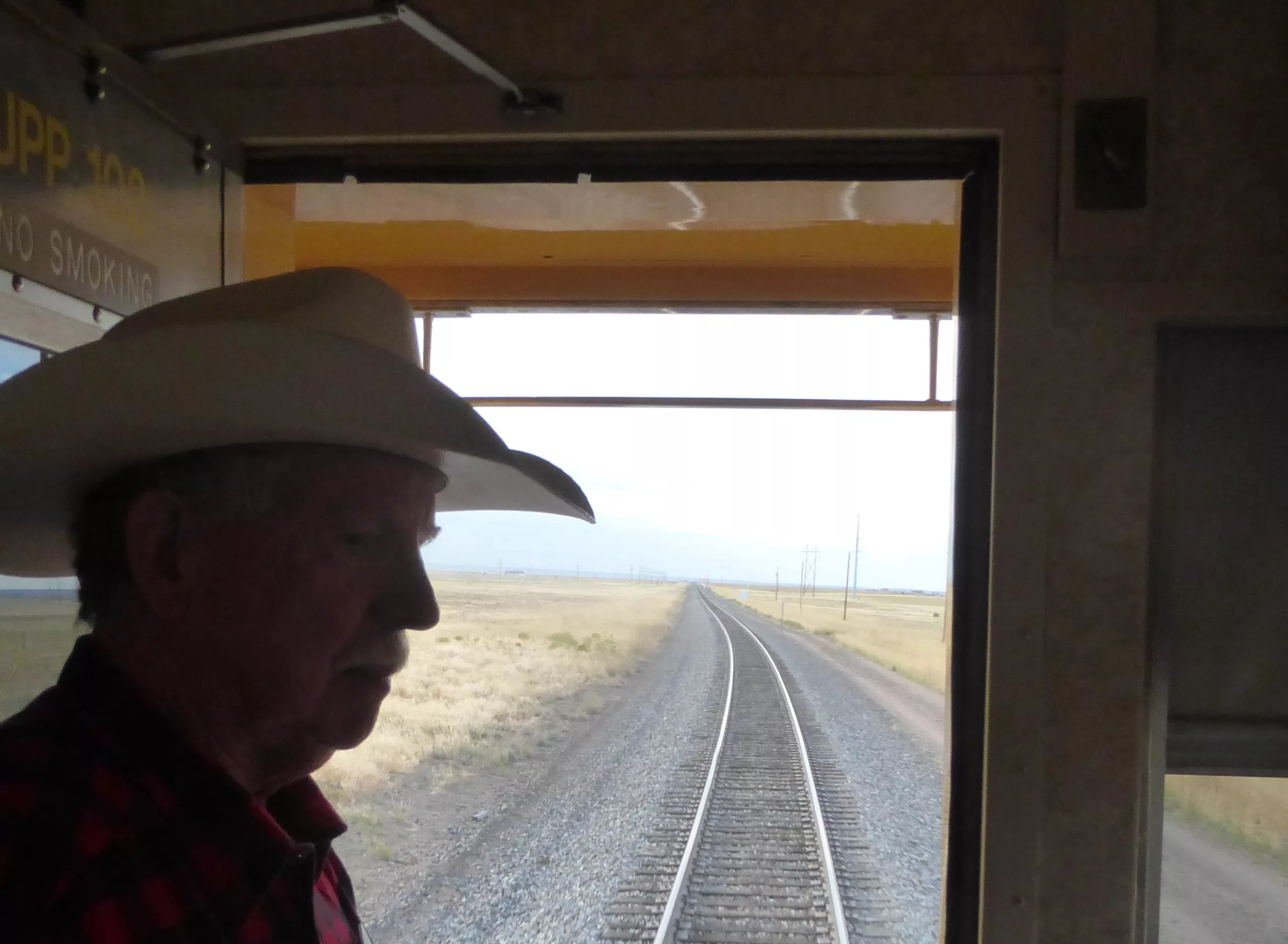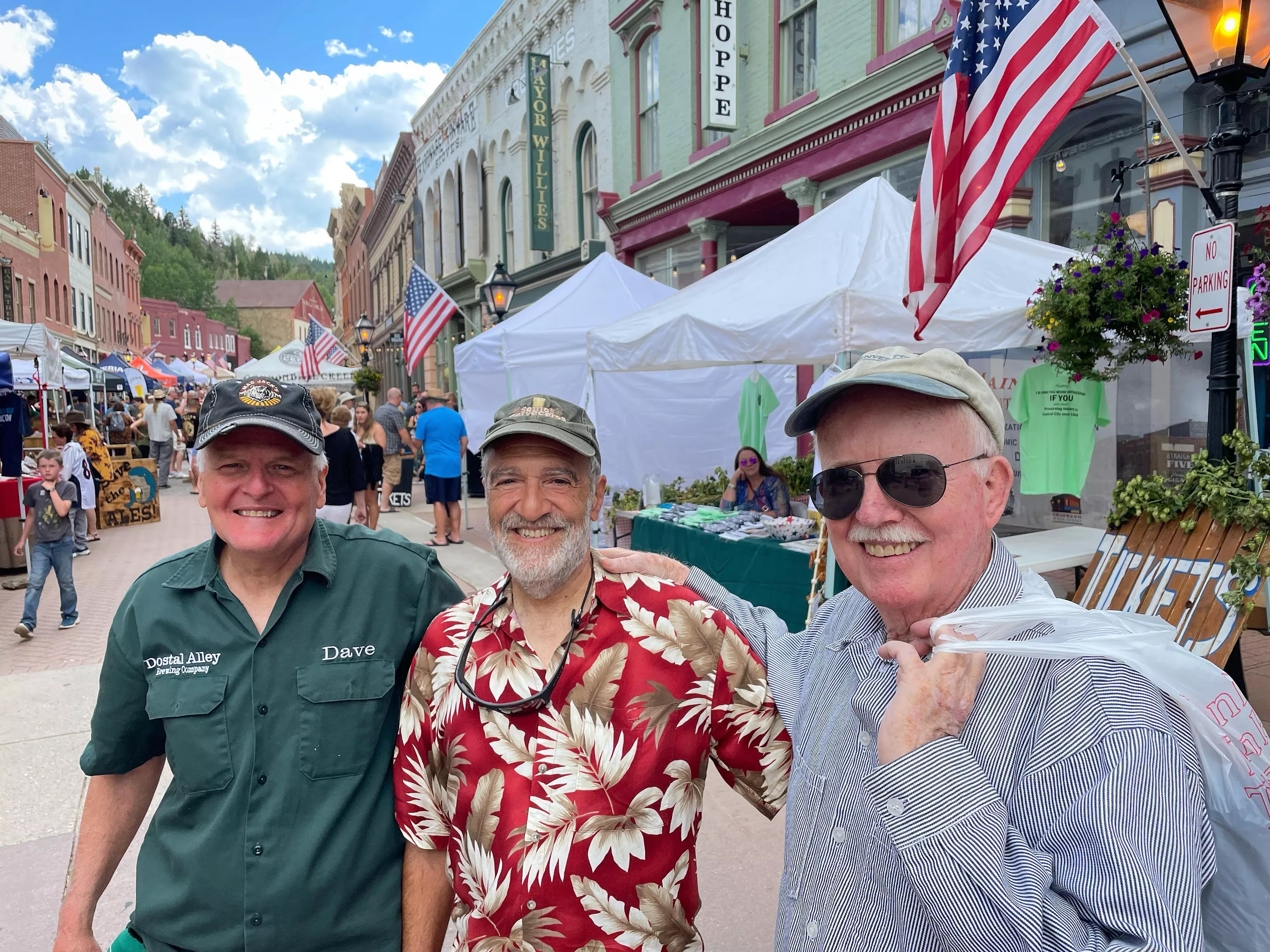
courtesy Rich Grant

Audio By Carbonatix
Without Dick Kreck, there would be no LoDo in Denver. But there might be more beer.
The man who ultimately acquired the license plate “Mr. Beer” left California as soon as he could and, in 1968, joined the Denver Post, where he held various editing jobs and wrote a city column for eighteen years. He also managed to take not one, but two buyouts from the Post; along the way, he somehow got a buyout from the Colorado Gazette, too. With moves like that, it’s no surprise that Kreck was inducted into the Denver Press Club Hall of Fame in 2010.
That was long after he gave the nickname “LoDo” to the dusty old warehouse district of lower downtown that stretched from Union Station to Larimer Square. “Dana Crawford hated it,” Kreck recalled, referencing the preservationist who created Larimer Square. “She thought it was demeaning to the neighborhood.”
But lower downtown was a tough neighborhood to demean at the time – and the LoDo name, which Kreck introduced in a September 1983 column, right when Westword‘s office was located in the heart of the area, above the old Wazee Supper Club, caught on quickly. “I didn’t think I was a great genius for thinking of it,” Kreck told me, “but now I wish I had patented it.”

Dick Kreck on the Cheyenne Frontier Days Train he resurrected.
Steve Weil
Kreck told me a lot that I can’t repeat here, including the story about how he and a future mayor/governor/senator stopped at a topless doughnut shop on their way home from a visit to a Fort Collins brewpub. But there are also stories I can repeat, about how he brought the Denver Post Cheyenne Frontier Days Train back to life. And about how he told his entire readership that he thought Westword”s Best of Denver was getting a little, well, tired – and we then responded by naming him Best Gossip Columnist the next year.
“In his good-spirited way, Dick Kreck does a better job than anyone else of demonstrating why Denver is an interesting, historical and fun place to live and play,” his award noted.
“You could have knocked me over with a quill,” he wrote in response to the honor. “This is the high-water mark in a career that has been drifting for thirty years. The fact that I rarely write ‘gossip’ (that oh-my stuff about who was seen eating steak in LoDo and who punched who at a tony Cherry Creek eatery) shouldn’t get in the way of winning a big-time award, one that comes with a certificate suitable for framing.”
Even after he left the Post, Kreck kept busy telling stories and connecting readers to the city. He published numerous books on local history, including Murder at the Brown Palace in 2003, Smaldone: The Untold Story of an American Crime Family in 2009, and Rich People Behaving Badly in 2016. And he went to every book club that invited him. Not because he wanted to sell books, necessarily: He wanted to tell stories every way he could.

Dick Kreck (right) in Central City with Dave Thomas and Charlie Papazian.
Rich Grant
And speaking of people (perhaps not rich) behaving badly: He served as the chaplain of the Central City Press Club, a crew of reprobates that included very few members of the actual press. And it was in Central City that Kreck played a key role in a scene that would not be possible today. Not just because that mountain town has changed so much since “limited stakes gaming” started in 1991 – and it has – but because the newspaper business has, too.
The Denver Post and now-defunct Rocky Mountain News emptied out their newsrooms to cover the start of legal gaming; there were probably as many reporters covering the story in Central City as there are in every Denver newsroom combined today. The night before the first ka-ching, Kreck and then-News columnist Bill Husted had a very enthusiastic discussion in the now-defunct Glory Hole bar over who was the biggest “hack.”
Since Husted passed just a few weeks ago, they can now continue that debate in heaven.
The many friends and family members Kreck left behind can hear the discussion now. Hope God has earplugs. And a few beers.
In his columns, Kreck showed why Denver was an interesting place. But his presence made it even more interesting.
There will be a memorial for Dick Kreck at 2 p.m. Saturday, January 4, at the Wynkoop Brewing Company, 1634 18th Street.